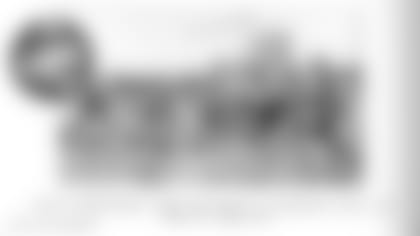The median age in the United States is close to 40.
That also is probably about the age of the great divide within Packers Nation. Those around 40 likely have some recollection of the tail end of the franchise's gory years. Those much under 40 probably only know the Packers of the Brett Favre-Aaron Rodgers' good times era.
Of course, those of us 65 or older lived through all the horrors of that 24-year drought, from 1968 through 1991, and can still recite our own laundry lists of the lowest of the lowlights.
From the 40-0 Lambeau Field loss to Detroit in the 1970 season opener – Phil Bengtson's last – which was the shatterproof truth for all of us the Glory Years were over. (The game all but ended with Greg Landry running 76 yards untouched on a quarterback sneak called to simply run time off the clock.) Through Dan Devine's desperate search for a quarterback, ending with him trading nine high draft picks in his final 16 months – two firsts, four seconds, two thirds and a fifth – for a washed-up John Hadl, Jim Del Gaizo, Dean Carlson and Jack Concannon.
Followed by Bart Starr's 13-47-1 record against teams that finished better than .500 and 2-27 record against teams that finished with 10 wins or more.
Then near the end was the 13-game losing streak at Lambeau Field – not counting a strike-replacement game – under Forrest Gregg and Lindy Infante.
For those who lived through it, here were the causes of maybe your worst nightmares; for those who didn't, consider this penance for not having to experience it and a reminder of how good you've had it.
Dec. 8, 1985: Miami 34, Packers 24 – One week after the Packers' victory over Tampa Bay in the memorable "Blizzard Bowl," the skies were clear, the temperature was in the mid-20s and the field couldn't have been in better shape. Dolphins quarterback Dan Marino picked apart the Packers' defense with 30 completions in 44 attempts for 345 yards and five touchdowns, the last the game-clincher in the fourth quarter climaxing a 67-yard drive.
Sept. 7, 1986: Houston Oilers 31, Packers 3 – In a season opener against an underdog coming off a 5-11 finish and heading toward another one, there were 2,849 no-shows and droves of the 54,000 who used their tickets started streaming toward the exits halfway through the fourth quarter. The Oilers – this was post-Earl Campbell – couldn't have been more predictable on offense, running on 27 of 28 first-down plays, but then converted on 15 of 19 third downs. Packers quarterback Randy Wright was a brutal 10-of-23 for 155 yards and managed to find James Lofton only twice for 14 yards.
Sept. 22, 1986: Chicago 25, Packers 12 – Without Jim McMahon and with third-stringer Steve Fuller getting the call early in the second half, the defending Super Bowl champion Bears scored what was a ho-hum victory for them in a nationally telecast Monday night game. Paul Ott Carruth's clipping penalty nullified a 71-yard punt return for a touchdown by Walter Stanley.
Oct. 12, 1986: Detroit 21, Packers 14 – The Packers ended the day 0-6 for their worst start in their 69-year history. Yes, worse than in their infamous, 1958 1-10-1 season. The Lions, who would finish 5-11 and 24th in the league in total offense, ran the ball 52 times for 236 yards, a 4.5 average. Rookie back Garry James rushed for 140 of those yards, five more than he gained in his first five games.
Nov. 9, 1986: Washington 16, Packers 7 – With their fifth straight loss in Green Bay, the Packers set a record. Going back to 1919, they had lost four in a row five times, the most recent under Starr in 1976-77 and Devine in 1973-74, but never as many as five. A total of 8,925 fans who purchased tickets didn't show up. The loss dropped the Packers to 1-9. However, on the bright side, it was a close game against an opponent heading to the playoffs and the Packers scored a touchdown, their third and final of the year in their five games in Lambeau. All three came on Wright passes covering 5, 6 and 3 yards. Yes, if you attended all five games at Lambeau in 1986, you would not have seen the Packers score a TD on a play longer than six yards.
Dec. 7, 1986: Minnesota 32, Packers 6 – The loss left the Packers winless at Lambeau for the first time since it opened in 1957, not counting strike-shortened 1982 when they played only one game there. When Gregg played for Vince Lombardi, the Packers were 28-7-1 in games at what was referred to as new City Stadium until 1965 and a house of horrors for many an opponent. Now, Gregg, his voice dripping with sarcasm, said the only team with a hang-up about playing there was his own. "I think it's intimidating for the Green Bay Packers … Maybe we'll play all our games away from home," he snarled. The no-show count on an almost ideal 32-degree December day for a game against the rival Vikings was 9,113.
Sept. 13, 1987: Los Angeles Raiders 20, Packers 0 – Knowing the players were ready to go on strike, fans encouraged them to do so as they trudged off the field to the chant of, "Strike, strike, strike," following another dispiriting performance in a Green Bay opener. Since the debacle against the Lions in 1970, the Packers were 3-14-1 in their Lambeau openers.
Nov. 8, 1987: Chicago 26, Packers 24 – Technically, because the strike-replacement games counted in the standings, what's still the record losing streak in Green Bay ended at eight on Oct. 18, when the Packers beat Philadelphia and fans cheered, "B team, B team," as the fill-ins left the field for the last time. The previous week, the B team had lost to Detroit to extend the record to eight. This defeat was a heartbreaker, decided by a 52-yard Kevin Butler field goal as time expired. Of course, it didn't help that the Packers were penalized 16 times for 125 yards.
Dec. 6, 1987: San Francisco 23, Packers 12 – For a second year in a row, the Packers' regulars went winless at Lambeau, but fans got to be entertained during this loss by two all-time greats, Joe Montana and Ronnie Lott, whom Starr had passed on in the draft despite the pleas of his scouts. Montana completed his first 17 passes to set an NFL record with 22 straight, including the last five of his previous game, and Lott intercepted two passes.
Sept. 4, 1988: Los Angeles Rams 34, Packers 7 – It marked the Packers' third straight loss in their Lambeau opener. The cumulative score of those games: 85-10. Infante, in his Packers debut, watched his team commit seven turnovers and allow seven sacks. New Packers defensive backs coach Jerry Gray ended Wright's day with a 47-yard interception return on the final play of the third quarter to put the Rams up 31-0. "He threw the ball to me instead of the receiver," Gray said after the game. "It was the easiest six I ever had in the NFL."
Sept. 11, 1988: Tampa Bay 13, Packers 10 – The perennially hapless and destined-to-be 5-11 Bucs also won the rematch in Tampa Bay three weeks later giving them only their third season sweep of an opponent in their 13-year history. The Bucs also snapped a 10-game losing streak, dating to a victory at Milwaukee's County Stadium a year earlier. Kenneth Davis led the Packers in rushing with 18 yards.
Sept. 25, 1988: Chicago 24, Packers 6 – At 0-4, the Packers were the only winless team in the league and they'd lose again the next week for their second-worst start in history. It was the Bears' seventh win in a row in a rivalry dating to 1921 and they'd win the rematch in Chicago two months later to make it a record eight straight. The Bears rushed for 242 yards; the Packers for 34, their second-lowest total in 24 years. First-round bust Brent Fullwood gained a team-high 14 yards on seven attempts.
Nov. 13, 1988: Indianapolis 20, Packers 13 – It was now less than a month shy of three years since the regular Packers last won in Lambeau. They would end their streak at 13 a month later by beating Minnesota. But they also would finish the season 4-12, extending their drought without a winning record over a 16-game schedule to 11 years.















